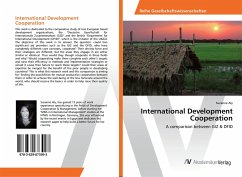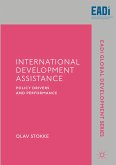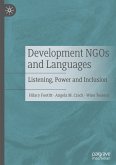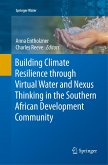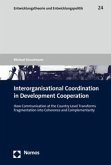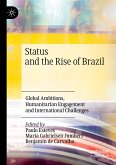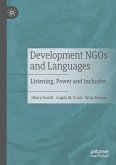This work is dedicated to the comparative study of two European based development organizations, the "Deutsche Gesellschaft für Internationale Zusammenarbeit (GIZ)" and the British "Department for International Development (DFID)", which is the initiator of the UKAid. The objective of this work is to answer the question: could two significant aid providers such as the GIZ and the DFID, who have completely different core concepts, cooperate? Their driving force and their strategies are different, but the areas they engage in are either similar or identical. Thus would they though cooperate in these fields and why? Would cooperating make them complete each other's targets and raise their efficiency in methods and implementation strategies or would it cause their failure to reach those targets? Could their areas of expertise be merged for the benefit of the poor people in developing countries? This is what this research work and this comparison is aiming for: finding the possibilities for mutual productive cooperation between them in order to achieve the well-being of the less fortunate around the world, who should receive the basics in order to help raise their quality of life.
Bitte wählen Sie Ihr Anliegen aus.
Rechnungen
Retourenschein anfordern
Bestellstatus
Storno

